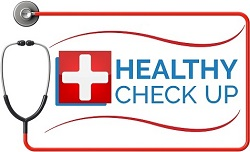10 Most Common Diseases With Their Signs And Symptoms
A blood test online can detect or confirm a possible disease. Check your own health from home, if you choose not to use health insurance or a doctor online. Check yourself today, if you are worried about having any of these signs and symptoms.:
1) Anemia:
- General feeling of tiredness or weakness (fatigue)
- Lack of energy
- Pale skin (pallor)
- Dizziness
- Headaches
2) Cancer:
- Unexplained weight loss,
- Decreased appetite,
- Bone pain,
- Coughing bloody sputum
- Change in bowel habits
- Rectal bleeding
- Severe pelvic or back pain
- Hoarse voice
- Unusual red, purple or black, irregular shaped skin lesions
3) Diabetes Type 1 and Type 2:
- Increased thirst
- Increased urination
- Increased appetite (with type 1, weight loss is also seen)
- Fatigue
- Nausea, vomiting, abdominal pain (especially in children)
- Blurred vision
- Slow-healing wounds or infections
- Numbness, tingling, and pain in the feet (neuropathy)
- Erectile dysfunction in men
- Absence of menstruation in women
- Rapid breathing (acute)
- Decreased consciousness, coma (acute)
4) Heart Disease
- Fatigue
- Shortness of breath
- Dizziness
- Nausea
5) Hypertension:
In most people, high blood pressure rarely causes any signs or symptoms. It's possible to have it for many years without realizing it.
- headaches,
- dizziness,
- frequent nosebleeds.
For this reason, hypertension is known as the "silent killer," quietly increasing the risk of developing stroke, heart disease, heart attack, kidney damage, and blindness. The greater the blood pressure for extended periods, the greater the potential for damage. That is why it is important for people to have their blood pressure checked on a regular basis.
6) Hyperthyroidism:
- heart rate,
- anxiety,
- weight loss,
- difficulty sleeping,
- dryness in the hands,
- weakness,
- diarrhea.
- bulging of the eyes.
7) Hypothyroidism
- weight gain,
- dry skin,
- constipation,
- cold intolerance,
- puffy skin,
- hair loss,
- fatigue,
- menstrual irregularity in women.
8) Kidney Disease
- Swelling or puffiness, particularly around the eyes or in the face, wrists, abdomen, thighs or ankles
- Urine that is foamy, bloody, or coffee-colored
- A decrease in the amount of urine
- Problems urinating, such as a burning feeling or abnormal discharge during urination, or a change in the frequency of urination, especially at night
- Mid-back pain (flank), below the ribs, near where the kidneys are located
- High blood pressure
As kidney disease worsens, symptoms may include:
- Urinating more or less often
- Feeling itchy
- Tiredness, loss of concentration
- Loss of appetite, nausea and/or vomiting
- Swelling and/or numbness in hands and feet
- Darkened skin
- Muscle cramps
9) Liver Disease
- Weakness, fatigue
- Loss of appetite
- Nausea and vomiting
- Abdominal swelling and/or pain
- Jaundice
- Dark urine, light-colored stool
- Itching (pruritus)
-
weakness and loss of energy.
In new onset liver disease,
-
symptoms related to problems processing bilirubin, including yellow skin and eyes , dark urine, and light stools, along with loss of appetite, nausea, vomiting, and diarrhea are most common.
Long term liver disease,
-
abdominal swelling (due to fluid retention), unexplained weight loss or gain
10) Sexually Transmitted Diseases (STD)
Since many STDs have few or no symptoms, it is possible for a person to have an infection and to infect others without either of them knowing it. For this reason, screening for these infections is important to ensure early detection and prompt treatment.
- Penile or vaginal discharge,
- Burning sensation with urination
- Lumps, bumps or sores on genitalia
- Warts around genitalia
- Blisters on a red colored area of the skin
- A red skin rash on your palms or soles

